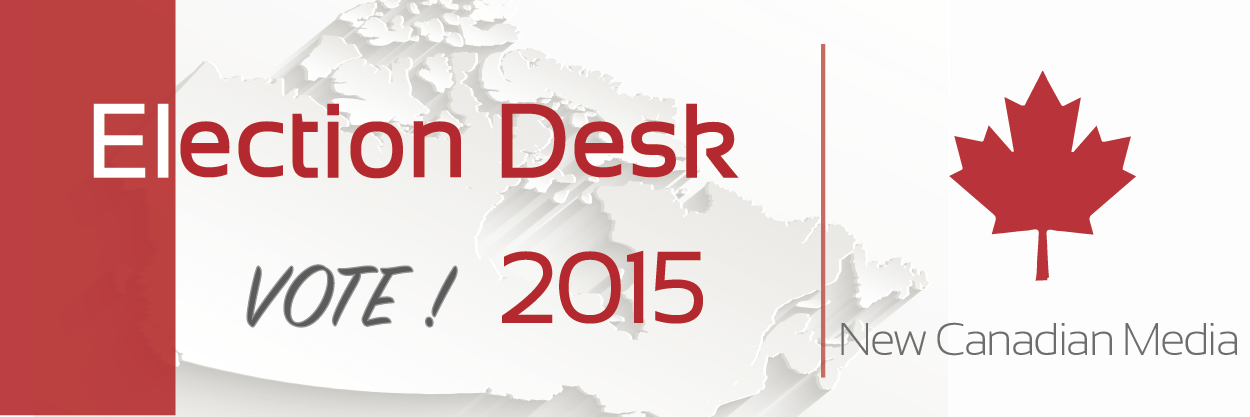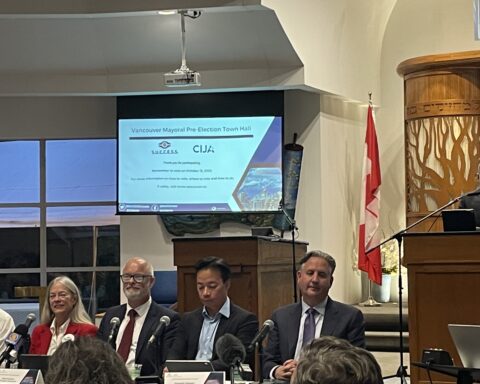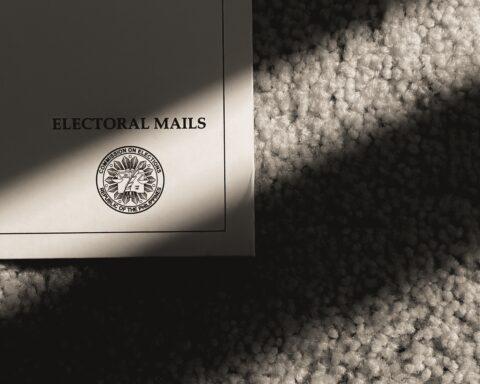Many new Canadian citizens will be casting their vote for the first time on Oct. 19. For them, understanding how to cast a ballot and finding the suitable candidate might seem like a daunting task.
Samara Canada, a non-partisan organization established in 2009, helps people reconnect with politics and newcomers to become active in their communities and work for democracy.
“Voting can feel mysterious or intimidating. It can be different in different countries,” says Samara Canada’s executive director Jane Hilderman.
“Voting can feel mysterious or intimidating. It can be different in different countries.”
While the steps to the ballot box are not as complicated as they may seem, if a person feels the voting process is too confusing, he or she may decide not to vote at all. Samara Canada’s work is geared at reducing the likelihood of this happening.
“We have an election initiative that allows newcomers to practise voting,” Hilderman shares, citing the organization’s Vote PopUp program. “A community group decides on an issue to vote on. Community members then practise casting a ballot and learn what they need to bring with them to vote.”
“It is fun,” Hilderman adds. “We have young people taking selfies at the pop-up. Kids are voting at the playground. This program is very adaptable and flexible for communities’ needs.”
[youtube height=”315″ width=”560″]https://www.youtube.com/watch?v=RRX5MBak7lU[/youtube]Finding more information
Elections Canada has plenty of information – completed with precise and illustrated guidelines – about voting, candidates and parties, along with its own section for first-time voters.
My Voters Guide is also one of the many informative packages that can be printed through the Elections Canada website. It is available in Aboriginal and ethnocultural languages like Punjabi, Arabic, Chinese (simplified/traditional) and Spanish, and some parts of the information are available in audio format as well.
Also valuable are resources like the Frequently Asked Questions section of the Elections Canada website, which has expanded information about voting, and the postal code search, which makes finding the electoral candidates in your area easy.
Registering to vote
You have to be registered to vote. If you’ve received your Canadian citizenship recently, this may be one of the reasons why you may not be correctly registered. You can check your status online or by calling your electoral district’s office.
It is recommended to register in advance, but it is also possible to register at your local polling station with proof of name and address.
If you have been mailed a voter information card with your correct name and address, it means that you are registered. The voter information card shows when and where you can cast your vote.
If you are not registered, go to the online voter registration service and follow the step-by-step instructions. If you are unable to register online, call or visit your local Elections Canada office to either request the form is mailed to you, or to register in person.
Advance registration online, by mail or in person has to be done by Oct. 13 at 6 p.m. It is recommended to register in advance, but it is also possible to register at your local polling station with proof of name and address.
Selecting a candidate
Picking a suitable candidate may be a big question for a voter who is unfamiliar with Canadian politics.
For those faced with this problem, Hilderman recommends attending one of the many candidate debates organized by local groups in individual ridings.
“New Canadians have an opportunity to remind Canada how important it is that we have democracy and we have a chance to shape it.”
As well, Hilderman recommends using Vote Compass and spending time with people who know about politics.
However, she emphasizes there is no single right way to pick a candidate.
“Spend time thinking and weigh out your options,” Hilderman says. “New Canadians have an opportunity to remind Canada how important it is that we have democracy and we have a chance to shape it.”
Other ways to get involved
Hilderman encourages newcomers, with or without Canadian citizenship, to see the importance of participating in democracy beyond voting.
According to her, newcomers can have open dialogue with their riding representative, help their neighbourhood to solve common challenges and volunteer.
Hilderman urges newcomers not just to vote, but to shape politics too.
“They can contribute to politics at their community level. Talking about politics is important here.”
Journalist Samantha Lui mentored the writer of this article, through the New Canadian Media mentorship program.
Maria Ikonen has graduated with a M.A. in Media Science from University of Lapland and MSSc. in Journalism and Mass Communication from University of Tampere. A native of Finland, she is a member and active writer for Globalisti Magazine, a publication of Changemaker Finland that is an advocacy network working for global justice. She has written academic research about representations of masculinity and participated in research about religion in media culture.




